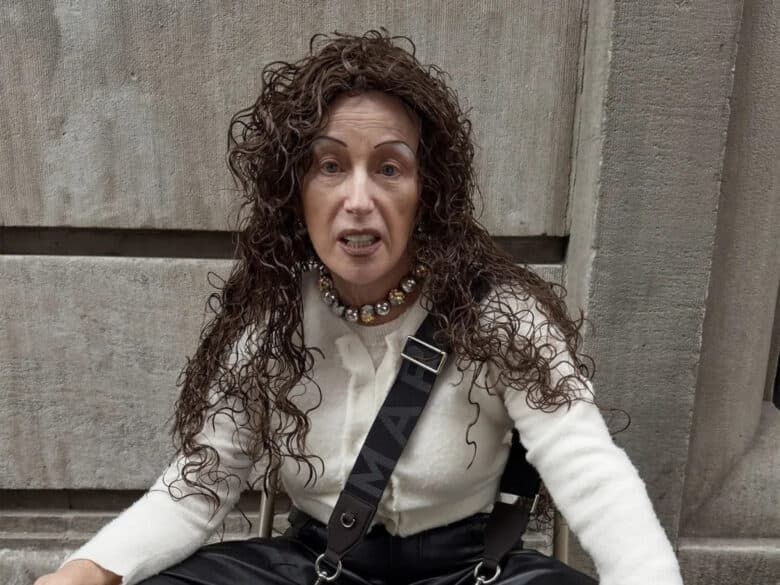Emerald Fennell and Rosamund Pike on bringing the twisted world of ‘Saltburn’ to life

Ever since Saltburn’s theatrical release just over three months ago, Emerald Fennell’s second outing has proved practically inescapable. Even if you haven’t watched the film, you’ve doubtless seen the discourse, scrolled past the Jacob Elordi fancams, witnessed endless discussions of a divisive “bathtub scene”. Buoyed by an Amazon streaming release over the festive period, the film captured the imagination of many.
For the unaware, the darkly comedic Saltburn centres on a group of wealthy Oxford students who escape to a luxurious estate in the summer and tells a tale of privilege and unequivocal lust and desire. Featuring an ensemble cast of some of the most critically revered actors on the globe, including Rosamund Pike, Barry Keoghan, Jacob Elordi, Archie Madekwe and Sadie Soverall, Saltburn has managed to capture the zeitgeist thanks to its delicious serving of class, sex, ambition, trauma and dead-eyed emotion.
Pike in particular, as Elspeth Catton, Saltburn’s bohemian but bloodless matriarch, strikes an unnervingly accurate note as the careless mother of Elordi’s character Felix. When Felix brings home Oliver (Keoghan), his new friend from Oxford University, Elspeth is delighted to add a new tragic case to her collection of playthings. Already among them is Carey Mulligan’s lost soul character, Pamela – an old friend on the run from a messy breakup with a Russian oligarch.
Gaining an insight into the world of Saltburn, Fennell and Pike sit down with HUNGER to discuss the inspirations behind the film, the close relationships between the cast, and how their own experiences at Oxford shaped their direction and performance.
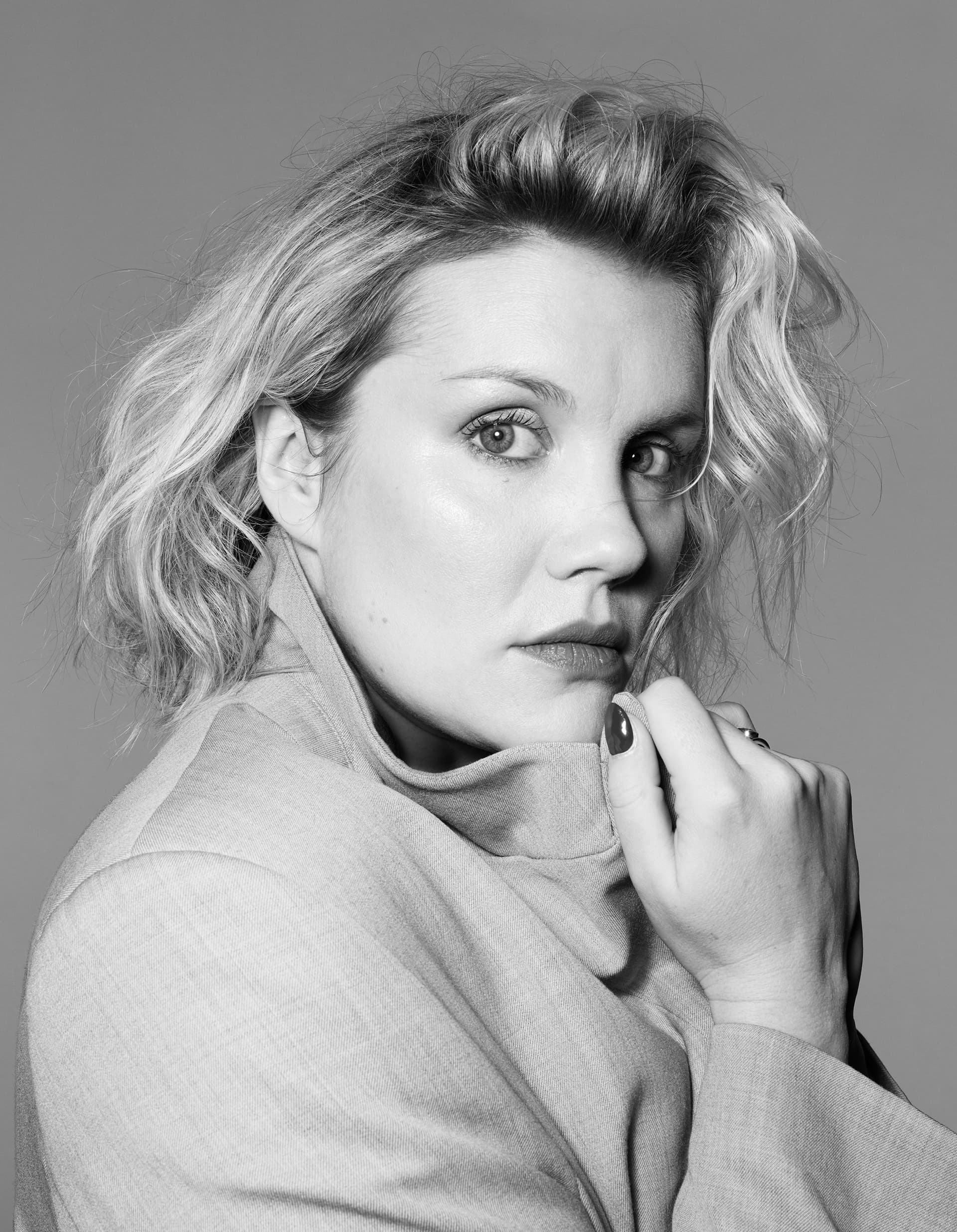
Rosamund Pike: You’ve said to me and others that the idea for Saltburn started with the image of a man licking the bottom of a bathtub. How does that idea grow into the film we see now?
Emerald Fennell: Well, This feels very official [laughs].
RP: It’s just such an amazing idea. And of course, when we’ve seen the film, we feel it, and we can see, well, of course, that’s what you started with.
EF: It’s a really difficult one because it’s not always easy to remember. It’s a bit like a dream. Usually, the first stages of things tend to be a bit more like a lucid dream where you’re sort of lightly in control of what happens, but not entirely. The stories that interest me ask loads of questions immediately. And so then it’s just a matter of answering them. So, with Promising Young Woman, it was that moment of a drunk girl on a bed with somebody taking her underwear off, drunkenly saying, “What are you doing?” And then sitting up sober and saying, “What are you doing?” The nature of the question changes. Like the bathtub scene, I was like, okay, I know what this is about. At least I know who this person is. I guess it’s a character thing because you know so much about Oliver and Cassie from those moments. And then you’re wondering who is this person they’re obsessed with. Why are they lying to us?
RP: And there’s no self-denial in Oliver?
EF: Oh no, I think there’s a huge amount of denial. I mean, spoiler alert – yes, he’s talking to Elspeth, but he’s not really talking to Elspeth because she’s, at best, in and out of consciousness. He’s talking to her because of the sort of power it gives him. But really, he’s talking to himself. He’s reassuring himself.
RP: Did having the story germinate at Oxford come with that first idea?
EF: I thought early on that it would be a fun take on Brideshead Revisited and the ‘something happened in a country house one summer’ genre. So therefore, what I like doing, in general, is going back to the familiar and kind of making it hopefully unfamiliar or uncanny. So I think probably quite quickly it would have been, ah, it’s one of these stories, and if it’s one of these stories, it has to have the familiar sort of trappings of those stories, which is inevitably kind of Oxford or Cambridge or, you know, a boarding school. So I don’t know, and it helps that I went there, and you went there too. I like familiarity because I like detail, so I like feeling comfortable up to a point about the workings of a place.
RP: And that’s why it excites people so much, the detail. The specificity and the recognition and also the surprise, people don’t just have recognition. They are surprised because you’re not following any of the tropes of those places as we’ve become accustomed to seeing them on film.
Americans have long looked to our period dramas to look at our beautiful houses and how people live in Britain or are supposed to live. You give us a bit of that, but you also want to take us inside the slightly slovenly side of wealth. Can you talk about that and why that’s fun to play with?
EF: Well, I think it’s like everything in a funny way. You can’t really have one without the other, can you? And it’s the same reason why when you’re framing a shot or when you’re shooting an object of desire, if you’re looking at how you photograph someone like Felix, it was as important to me to have kind of pores and stubble rash and armpit hair as it was to have the glowing golden, slo-mo God shot. What we like about seeing people’s lives isn’t just the perfect moments.

RP: I was thinking about that scene at Oxford with Oliver and Felix and the heat of that room and Oliver vaguely helping to tidy up Felix’s irritation and saying that he can do it himself. What was that scene to you?
EF: Well, I think the thing that I felt was really important to establish was the power dynamic and how it’s used and what Oliver’s role is to Felix. What he’s doing is what most of us would say is a nice thing to do. I long for somebody to come to my fucking house and unload the dishwasher. That’s what we all desperately want, but this is a misstep from Oliver.
He’s squeamish about the mess. It is very hot, and there’s rotting food in that room, and it smells, and he doesn’t like it, and he does think it’s sloppy. He is right when he says to Felix, “Only rich people can afford to be this filthy,” and it’s the same with the eggs – there’s a squeamishness to him, but it doesn’t extend to sex.
RP: A lot of the most erotic things in life often have a little bit of loathing mixed in or a little bit of distaste. For Oliver to lick the bottom of the bathtub is particularly transgressive because of his squeamishness. So, it is a healthy dose of self-loathing, disgust and eroticism.
EF: And he likes power. His sexual relationship to power is really interesting, too, because he likes providing a service that gives him an enormous amount of power, but then, of course, when he’s on his own, he revels in being the acolyte.
RP: He provides a service and a story. It gives him power, and you know he gives Elspeth what she needs in that she wants to feel benevolent and look after the less fortunate.
EF: I think what I love so much about working with actors and writing and being in the skin of somebody, whether it’s writing or directing or whatever, I look to give people what they want, and that gives me pleasure, and that gives me power – I’m a people pleaser. But it’s also not good. And it can be used, it can be neutral, it can be evil, it can be positive. That’s the thing for me; that’s always interesting, and why I love all of the characters and working with all of you is because you’re all up for those conversations.
RP: You’ve certainly delivered to a whole generation of people what they didn’t know they needed. Is that people-pleasing? I mean, the film has massively been people-pleasing. The hit that it’s become has kind of astonished us.
EF: I think it’s so exciting. I didn’t see it coming. Nobody could see anything as wild as this coming. I think that what I did know was that it gave me pleasure; I don’t mean that in a kind of sinister, pervy way. What I mean is that the film itself, making it with all of you, writing it, editing it, showing it to people, gives me enormous pleasure.
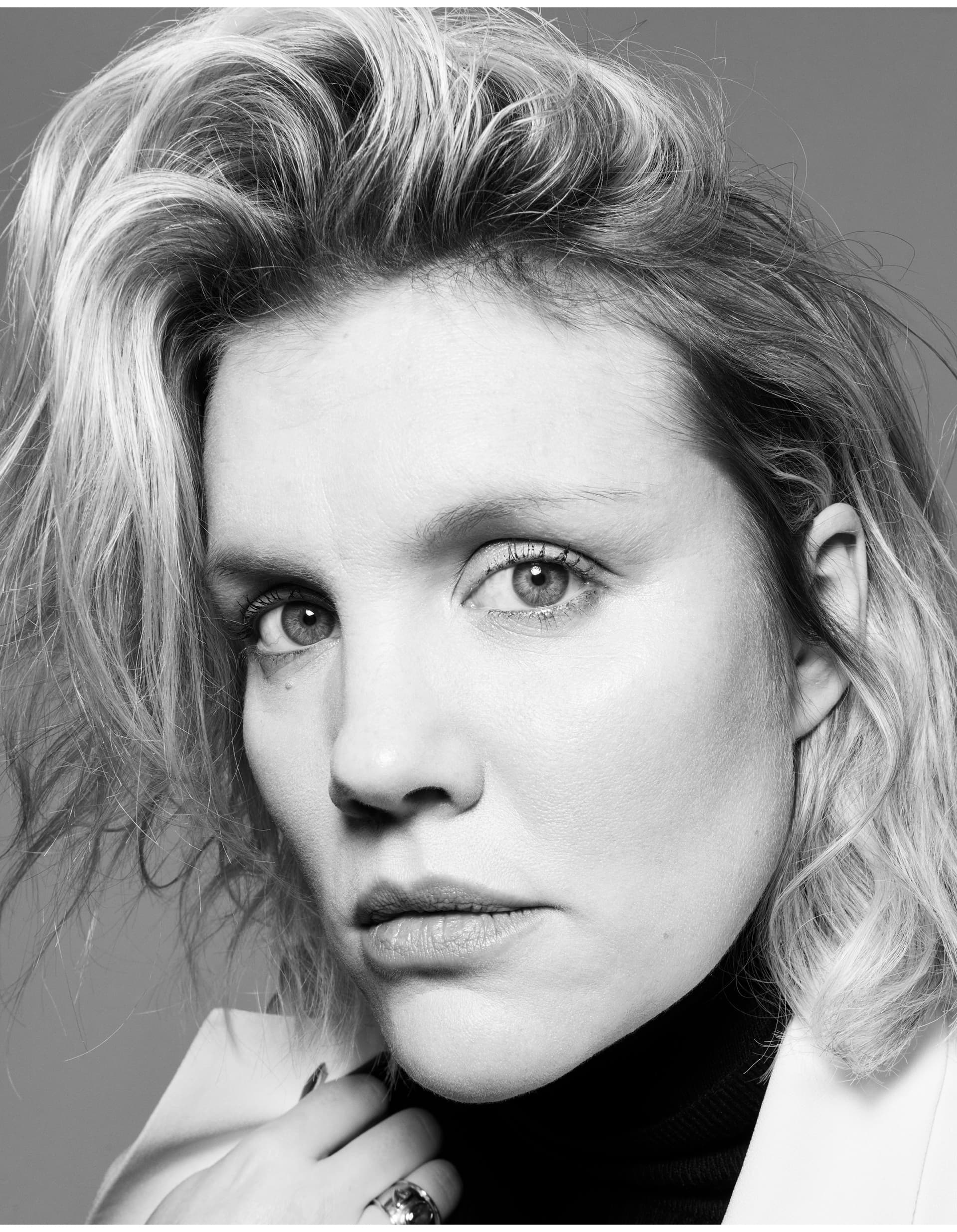
RP: I mean, I’m using people-pleasing in a different sense.
EF: Absolutely, but I think it’s really important because you said it’s something I hadn’t actually really thought about in that detail, but you’re absolutely right. I think that this film probably does contain a certain healthy dose of self-loathing from the filmmaker for me because I am also engaged in this fetish. I also like looking at these things. So I guess that’s the hope. That’s why you hope something clicks in with people: you’re sort of maybe being honest enough that people will connect to it themselves.
There are also lots of people who are not pleased, who are profoundly not pleased, who are, in fact, enraged. The negative response to this film is as interesting and visceral and extreme, you know. So that’s interesting, too. What I’m sort of realizing now, having only made two films, is that you cannot have one without the other. It’ll be so interesting in a year’s time when the dust settles to see how everyone feels about it.
RP: I mean, you’re aware that people want to take psychedelics and watch it, and people are saying they want to have parties where they dress up and watch it. These are the sorts of things that are out there in the world. It was very interesting to me that people want to have a kind of psychedelic experience with it… It’s a very sensory film. And then there’s the smell. I’d completely forgotten that you gave us all scents when we arrived on set, and I loathed mine! I wore it every day, and the smell was overpowering. Everywhere Elspeth sat, it would leave a trail. When she hugs, she’s not a hugger, really, but if she kisses someone, it’ll leave a scent. Why did you do that?
EF: For me, it’s an experience as well. It’s immersive. For all of us, not just for the cast but for the crew. Every film, everything that you do is its own little kind of island, basically. For me, the way that people interact with each other, the trust we build up together, the sense of freedom and fun and playfulness that you want to establish from the beginning, that’s there not just to make people feel comfortable and to show that they’ve been thought about and appreciated, which I really always do hope to do.
RP: The scents, can you remember any others? I only knew what I was given – Poison by Christian Dior.
EF: Yes, I remember everyone’s. Felix was Issey Miyake L’EAU D’ISSEY. The smell of old pizza and L’EAU D’ISSEY was very triggering for a lot of us. Classic Venetia was Gucci Envy, which was difficult because it’s been discontinued. It was great because she didn’t have a fresh bottle like all of you guys did because it’s impossible to get. So what she had, which was perfect for Venetia, was some dregs of some old ones that we had to find on eBay, which felt perfectly right. Then Oliver had a Tommy Hilfiger scent that was something quite basic, but then it became L’EAU D’ISSEY halfway through the film.
EF: One thing that I wanted to talk about was the scenes after Felix died because you’re a mother, and I’m a mother, and when we were filming, I had a one-year-old and a three-year-old. So hormonally, I was not totally all there. There was that moment when you were walking through the maze, and I just thought, “God, you’re asking so much of people.”
RP: I was describing that to somebody the other day. I was just saying, “Of course, when we’re on the back of Elspeth’s head, and she’s going to the centre of the maze, she knows with certainty what she’s going to find. And I was just saying this to somebody, and suddenly I was crying and went all tight in my stomach and chest. And then you think, “This is a film,” but on some level, we’ve lived it. And yes, of course, there’s its afterlife, which is joyous. But on another level, there’s a lot of pain in the film, and we also explored that.
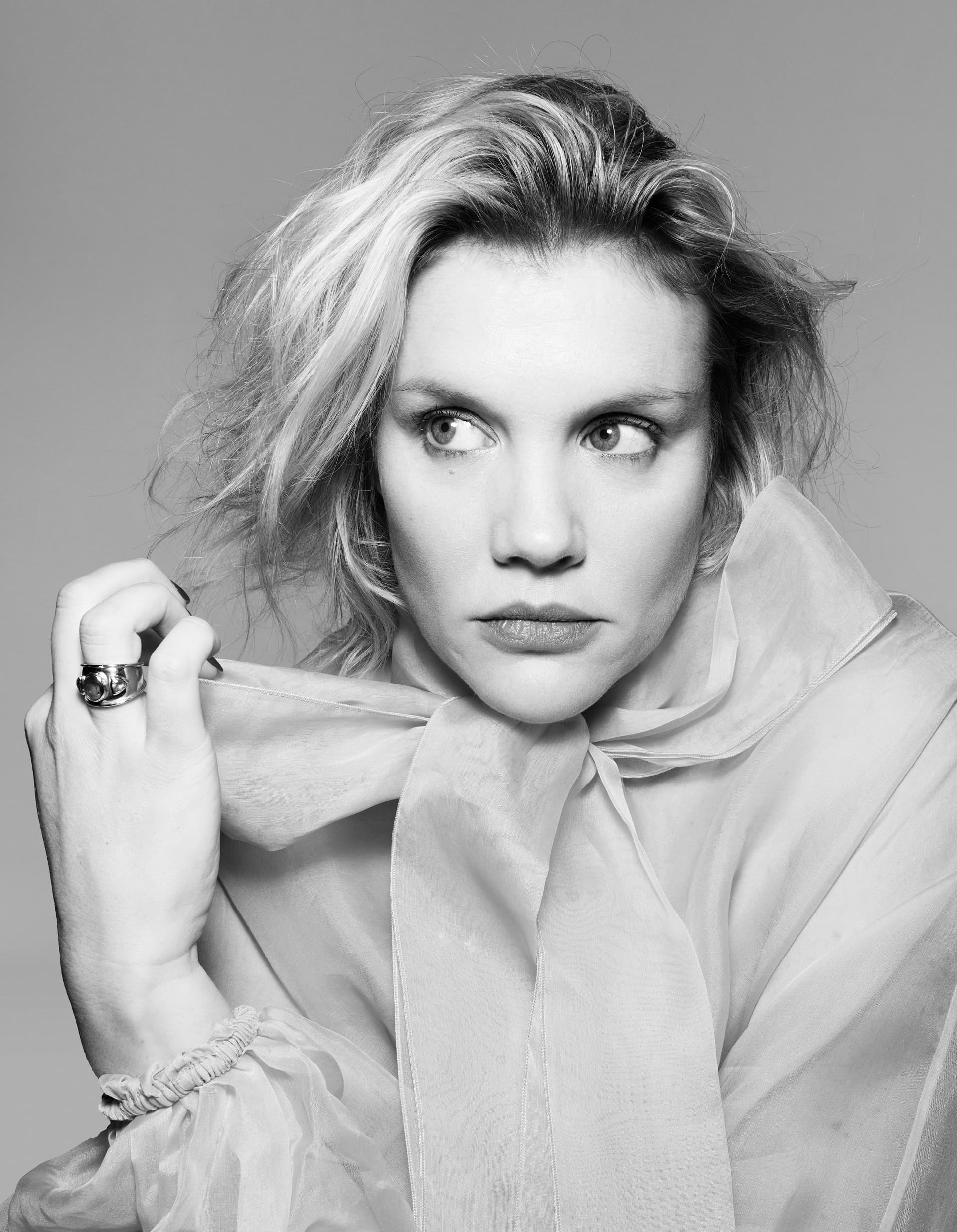
RP: The scents, can you remember any others? I only knew what I was given – Poison by Christian Dior.
EF: Yes, I remember everyone’s. Felix was Issey Miyake L’EAU D’ISSEY. The smell of old pizza and L’EAU D’ISSEY was very triggering for a lot of us. Classic Venetia was Gucci Envy, which was difficult because it’s been discontinued. It was great because she didn’t have a fresh bottle like all of you guys did because it’s impossible to get. So what she had, which was perfect for Venetia, was some dregs of some old ones that we had to find on eBay, which felt perfectly right. Then Oliver had a Tommy Hilfiger scent that was something quite basic, but then it became L’EAU D’ISSEY halfway through the film.
RP: One thing that I wanted to talk about was the scenes after Felix died because you’re a mother, and I’m a mother, and when we were filming, I had a one-year-old and a three-year-old. So hormonally, I was not totally all there. There was that moment when you were walking through the maze, and I just thought, “God, you’re asking so much of people.”
EF: I was describing that to somebody the other day. I was just saying, “Of course, when we’re on the back of Elspeth’s head, and she’s going to the centre of the maze, she knows with certainty what she’s going to find. And I was just saying this to somebody, and suddenly I was crying and went all tight in my stomach and chest. And then you think, “This is a film,” but on some level, we’ve lived it. And yes, of course, there’s its afterlife, which is joyous. But on another level, there’s a lot of pain in the film, and we also explored that.
RP: I completely agree. When it came to the whole cast, you didn’t know that we’d all get on so well, did you? Does that ever come into your thinking?
EF: Well, I got on with all of you, and that’s a huge part of it. When I first met you, I just remember that I was trying to describe to my husband that moment when I got home. You were just so fascinating, funny, cool and perceptive, and it was just so wonderful. But that’s the thing for me.
RP: I felt exactly the same about you
EF: For Archie and Alison’s part, we auditioned because we wanted new people, but in general, I much prefer to meet people and have a conversation about the script. I think for me, it’s like if I really feel this person’s the right person, It’s going to be fine. It’s a bit like being like, this is going to sound so c***y, but it’s a bit like being a hostess at a party. How do we find out how this person sits next to this person? That’s going to be interesting. But if they sit next to that person, that will also be quite fascinating. These two might have sexual tension. They won’t like each other. That’s the thing. It is building that world.

RP: let’s talk about me for a minute.
EF: Yes, please! Let’s talk about you.
RP: It’s interesting how Elspeth caught the public imagination in the way that she has. The lines are very funny, and that’s how she came off the page to me. She had a voice when I read the script. That’s how she sounded. It’s what you wrote, and I delivered it. That’s what it feels like. But I don’t think I could have been her if it hadn’t been for those people around me who were also delighted with her. Ultimately, had the cast not done that, I wouldn’t have. She wouldn’t have come out like that.
EF: That’s what I love so much about her and about you. It’s that she’s a troll. That’s what was great about Elsbeth. She knows she’s being transgressive. She’s poking. She knows she’s being un-PC and naughty and rude. But it’s a way of seeing if people are worthy of her. It’s a way of seeing if they’re fun or they’re not.
RP: How do you think Felix is similar to his mother?
EF: So much of that is you and Jacob. Also, you said quite early on in rehearsals that there weren’t any kind of moments between you, and you were really right, so we put a lot of time into that, and it was absolutely down to you guys. And also your chemistry. She’s his dream woman, I would say. Not in an Oedipal way – just that she’s fucking cool.
RP: Was the age difference between Sir James and Elsbeth important? The fact that Felix and Venetia are a boy and a girl? Why are there only four of them? Why only two children? Why not three? How does all that come?
EF: I mean, I think there are three children, of course, because there’s Farleigh. I know he’s not a child, but he’s always there. He’s been there every time. So, I think I always think of him as the kind of adopted child. There’s a reason he has his bedroom in the attic and he has a single bed. What I liked about Sir James, and what was important for him as a character, was he was a man who’d got a family. He was sort of a permanent bachelor who’d married later in life and then got this dream family and couldn’t believe his luck. That was always the feeling that he was this person who’d kind of, by some magical thing, had this family and treasured it. And that’s quite an important dynamic that, for all petulant and aloof he is, he’s genuinely thrilled to have a family. And I think when it comes to these sorts of families, It’s usually a very beautiful younger wife.
RP: And security again, I suppose – Elspeth is somebody who needs that security.
EF: Well, and also, she likes power. And we talked, You and me, a lot about her background and her modelling days. She probably was a bit resentful. She does have an ego. She’s got a very healthy ego. And I think that’s always quite a good thing in a woman, frankly.
EF: Would you be friends with her?
RP: Yes.
EF: Yes, absolutely. But I have absolutely no moral judgments of any of my friends. I mean, there are certain things. Of course, I absolutely don’t approve of and also wouldn’t be friends with someone if they ‘dot dot dot’. But in general, with Elspeth, I’d just do whatever she told me to. I’d be terrified of her. Would you be friends with her?
RP: Oh, God, yes. I mean, I’d try very, very hard for her not to think I was a bore. I’d Live in fear of her discarding of me. But, no, I tend to be drawn to people who are more outspoken. It’s a quality I admire, especially in the safe playing world we live in, where people are frightened to say anything.

RP: Do you want to tell the Hunger readers why you like the word “saltburn”? Why did you call it that?
EF: Oh, because it sounds like a sex injury.
RP: Exactly. How would you use it in a sentence now?
EF: I can’t wear that mini skirt because I’ve just got salt burn all over my thighs.
RP: That’s delightful. I think clearly another big thing for the film was building this whole world. Doing scenes like we were doing, those big dinners, the lunch scene, the shepherd’s pie scene. If you’re actors doing that scene from 8:00 in the morning till 6:00 at night, it is a fluid thing, isn’t it?
EF: That’s why I love that scene so much. That’s why it was so hard to cut. Because you all rely on each other, that thread between you is so strong.
RP: Oh my God, we relied on each other in this film, and that was so delightful. Because you do have films where you come and you work with very, very good actors, but their kind of performance is intact. And whatever you do, whatever you throw at them, it doesn’t really change because it’s its own entity. You could feel it was different. There was a guy on the camera truck. He said he’d normally be a focus puller, but he’d come to work on the truck because of you and because of being part of this thing. Or, you know, our fireman, Eric, and what he was feeling about that summer being at the house and being part of that story. Or the greensman, building the maze. Everybody understood what part they played, and I think that was very unusual.
EF: But that’s the joy as well. That’s the joy of physically making things. That’s why making a film is so thrilling. It’s such a singular thing to build a world together.
We haven’t talked about Reece Shearsmith. Should we just quickly talk about him?
RP: Okay, let’s finish on Reece Shearsmith.
EF: We love him. He’s the best.
RP: One of the things about the film, and it crops up again and again, is the sort of baffling rules of certain places. Whether it’s breakfast with the Cattons or, you know, the Oxford tutorial. When it’s right and when it’s wrong to try too hard. I think that’s always been one of the sort of mystifying things about Englishness. When it’s right to put effort in and when it’s definitely the wrong thing to put effort in, even when one would suppose that you’re doing an English degree, you should do some reading, but it’s rather frowned upon, really, because It’s supposed to be an exercise in bluff.
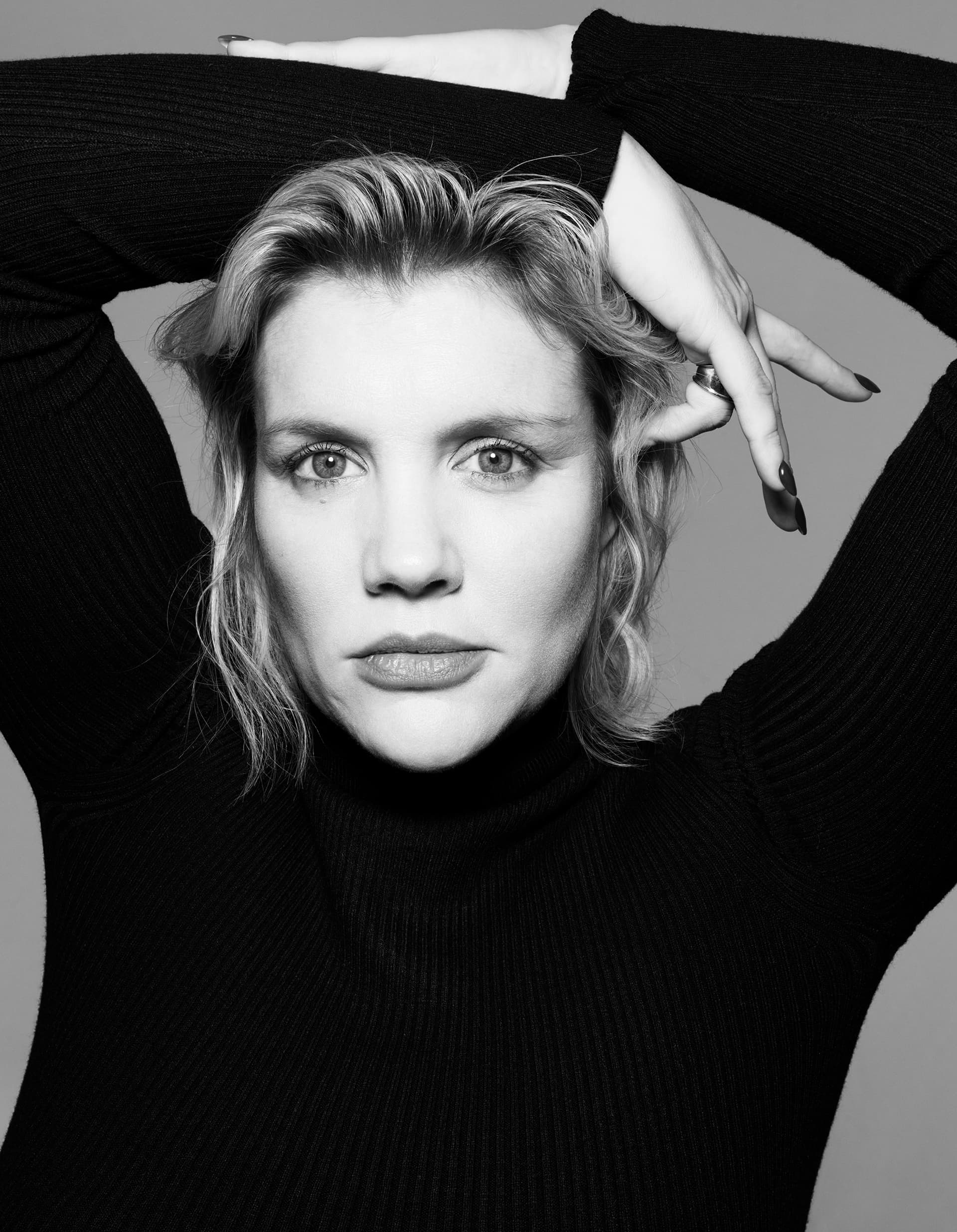
EF: Yeah, it’s absolutely an exercise in bluff. But it feels like a feminine thing to me because, of course, I went, having done all the reading, wearing my little Brideshead outfit, and it was just the most cringe-worthy thing in the world. It’s such a masculine institution. But as a young woman, you are expected to work much harder. So, I think that my experience and then Oliver’s experience were kind of feminine. You look at the Bullingdon Club now and the fact that they’re running the country, and it’s a sort of interesting thing because I think that my theory is that getting caught is what they like. They like being able to work their way out of it because they know they can talk their way out of it. And that’s what that scene is.
RP: That’s funny because I remember sitting in my first-year exams in this huge hall. You know, it’s very intimidating. And these two guys, after about half an hour, walked in very casually and just came and sat down, and I just thought, bloody hell, the arrogance. But also, how amazing that they’re just that indifferent or entitled or confident. Whatever it was, it was a pose, it was a stance, it was an attitude. And I thought it was pretty fabulous, I have to say. I was a sucker for it.
EF: But also, I remember being told very explicitly, don’t qualify your opinions because it’s what girls do. And all of the examiners who mark the exams are men. And if they sense that you’re a girl from your paper because they’re anonymous, the papers, you’ll get marked down. That’s what I was told. Don’t say “it may be that” or “it could be argued”. Don’t do any of that. Because they’ll know you’re a girl, and they’ll mark you down for it.
RP: And Oliver has the female experience. That’s so interesting. And Reece Shearsmith, who’s got sort of the ability to be frightening and embarrassingly socially awkward in that scene. And then it’s a relief when there’s a connection that you can make outside of the room. And, of course, the way Farleigh comes in sets up the Cattons so brilliantly. Because Farleigh comes in with charm and ease – he is the guy in my exam who walked in half an hour late and owned the room.
EF: I mean, honestly, Reece Shearsmith. But then, he’s the king of the grotesque. That’s why I love him, and I love The League of Gentlemen so much. You know, it’s both profoundly destabilizing and frightening and sexy and not at all real. But it feels real. The physical feeling I get when I watch The League of Gentlemen is very real. And that’s the balance always.
RP: And that’s what he does.
EF: That’s what he does, and that’s what you do. It’s real, and it’s not real. And that’s why it’s so fascinating because it doesn’t really matter in the end. It still just makes you feel something.
RP: Well, that’s a good way to end!

